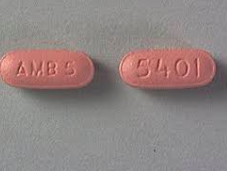Esai Pharmaceutical just got FDA approval for a new sleeping pill called Dayvigo. Is it any good? Plus - a rant about the "addiction specialist" fools who might want to overregulate it. It's worth reading this horrendous article just for the rant.

The FDA just approved a new sleeping pill – the second in a class that works by a novel mechanism – a dual orexin receptor antagonist. The first was Merck's Belsomra, which was approved by the FDA in 2014, but patients don't seem to like it very much (1). The new drug is called lemborexant (brand name Dayvigo). I figure that my fellow insomniacs might be interested in learning about it. Does it work as well as older drugs? What about negative baggage like side effects, the potential for addiction, etc.?
But first, a rant...
RANT
These days, when you practically need to get CIA clearance to get a Valium, it is nothing short of astounding that a company might launch a new sleep aid. After all, it could theoretically be abused, habit-forming, or....even...ADDICTIVE!
And who among us can be unaware that a coalition of very wise people has decided that they will not rest until this country is finally cleansed of ADDICTION! Here are some of them.

These fine individuals are SO wise that they've actually come up with a new definition of the term "addiction." Let me paraphrase:
ADDICTION: ANY MATTER, GAS, LIQUID, OR SOLID, THAT:
- Can in any way elicit a pleasant or enjoyable response in the human species
- May elicit a desire to partake again at any time subsequent to the first episode of enjoyment
- Except for alcohol. No one gives a s### about that.
A LITTLE HISTORY
1. Barbiturates
Barbiturates could reasonably be called the first "sleeping pills." They were used for more than a century for insomnia and also anxiety. There are more than 2,000 of them known. They are very effective, but also rather dangerous. Secobarbital (Seconal) is one of the preferred drugs for assisted suicide, something that the miscreants at Valeant Pharmaceuticals (one of my favorite targets. See: Pond-Scum Pharmaceuticals (Aka Valeant) Hits A New Low) took advantage of when they raised the price of a single capsule (raw drug cost - about a billionth of a cent) from $2 to $30 in anticipation of California becoming a right-to-die state. Nice.

Valeant, the drug company from hell, doesn't exist anymore. Sort of. They renamed themselves. Lipstick on a pig, no?
2. Benzodiazepines
Barbiturates were replaced by the much safer benzodiazepines in the 1960s. How much safer? See: Can Valium Kill You? and Can Xanax Kill You? It goes without saying that the Addiction Gestapo is now going after "benzos" with guns blazing because they can be (but need not be) addictive (2).
3. The "Z Drugs"
Benzodiazepines are still used as sleep aids, but they have largely been replaced by the "Z drugs," like Ambien (3). It's hard to say whether Ambien is safer than Valium because they both are quite safe in the absence of incompatible drugs, like alcohol, or if you decide to go for a 2 AM sleep-drive in the crater of the Kilauea Volcano. Ambien has managed to hang on to its Schedule IV classification (DEA definition: "Substances in this schedule have a low potential for abuse relative to substances in Schedule III.") But you can bet your entire 401K that there are plenty of busybodies who are only too eager to change that to a more restrictive class so that you can't do something convenient like (gasp) refill the damn prescription.
HOW GOOD IS DAYVIGO?
Dayvigo, like Belsomra, operates by a different mechanism from older sleep aids. Esai, the company that will sell it says...
Lemborexant binds to orexin receptors OX1R and OX2R and acts as a competitive antagonist with stronger inhibition effect to OX2R
Esai Global News 12/23/19
I have less than zero interest in going into the biology of orexin receptors, but feel free to read about it if you're so deranged inclined. Let's just see how well it works.
The company just published results of the SUNRISE 1 (4), a double-blind, placebo-controlled Phase III trial in which Lemborexant was compared to placebo and also Ambien in people with insomnia. The primary endpoint of the study was how long it took people to fall asleep (duh). The secondary endpoints were sleep efficiency (the percentage of time spent asleep while in bed) and whether people woke up in the second half of the night.
SUNRISE 1 consisted of 1006 participants divided into four groups:
- Ambien (zolpidem)
- Lemborexant (5 mg)
- Lemborexant (10 mg)
- Placebo
Both the high and low doses of lemborexant worked better than placebo in helping people fall asleep although the high and low doses worked about the same; roughly a 25% reduction in time. The same held true with sleep efficiency – both doses helped a bit (7% for the low dose and 8% for the high). Both doses also reduced the amount of time it took for people to wake up in the middle of the night by about a half-hour compared to placebo, and by a few minutes compared to Ambien.
WHAT ABOUT SIDE EFFECTS?
This always cracks me up. There were two "treatment-emergent adverse events reported in ≥2% of participants." One was somnolence (sleepiness). Jeez! What are the chances that a sleeping pill will make you drowsy?? OK, it's drowsiness the next morning but still, even Dr. Andrew Kolodny probably knows this. The somnolence data were a little strange: In the placebo group 1.9% reported morning somnolence. For Ambien that number was 1.5% – the same. But for lemborexant those numbers were 4.1% and 7.1% for the 5 and 10 mg, respectively. This is probably real.
The other adverse event reported was headache: 6.2% for placebo, 5.3% for Ambien, and 6.4% for lemborexant. In other words, nothing.
REPORT CARD
Unfortunately, the news of this new sleeping pill is a snoozer. Dayvigo/lemborexant works a bit better than placebo, and about the same as Ambien. However, the following may keep you up at night.
Esai hasn't released the price for the drug as of this writing, but consider the following:
Belsomra: The lowest retail price I could find is $353 for one month.
Zolpidem (generic Ambien): That number is $2.90. Per month.

Yummy!
Sleep tight. And don't let the bedbugs bite.
NOTES:
(1) On the Ask a Patient site Belsomra gets a putrid rating of 2.4/5, although there are only 7 reviews. Here's one comment: "Nightmares, didn’t sleep, extremely very bad headaches and pain." Which leads me to wonder how one can have nightmares while not sleeping.
(2) Addictive or not, it's already started: "Controlled substance scheduling of DAYVIGO is pending review by the U.S. Drug Enforcement Administration (DEA). Because individuals with a history of abuse or addiction to alcohol or other drugs may be at increased risk for abuse and addiction to DAYVIGO, follow such patients carefully." Don't worry, they'll find something.
(3) The others are Sonata (zaleplon) and Lunesta (zaleplon). I hate them.
(4) Drug companies usually pick stupid acronyms for clinical trials. For example, BLIND-DATE means Blinded Withdrawal Of Deprenyl In The Datatop Extension Trial. DISCO means Direct Coronary Stenting Versus Stenting With Balloon Predilation: Immediate And Follow-Up Results. Someone is probably paid a whole lot of money to come up with this stuff. There are hundreds of them.
